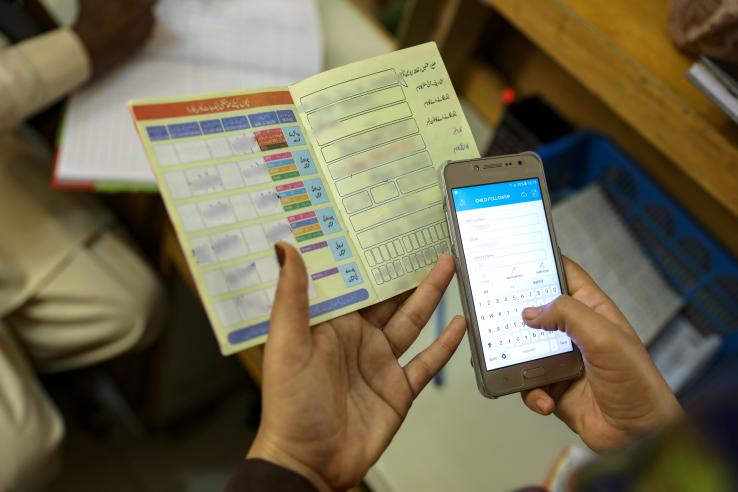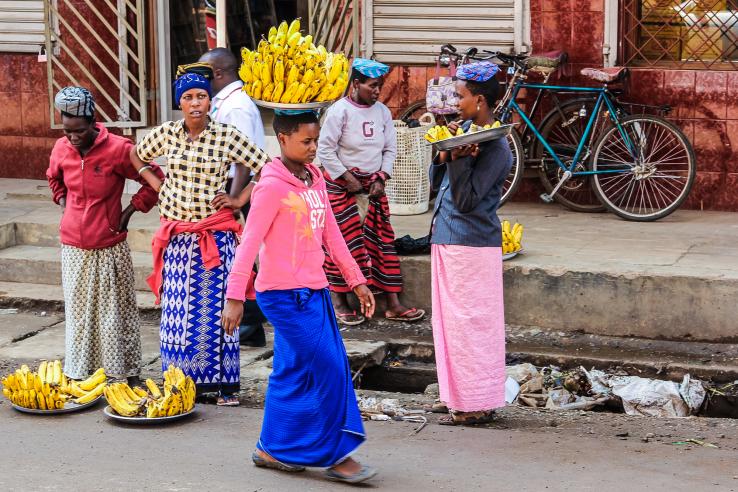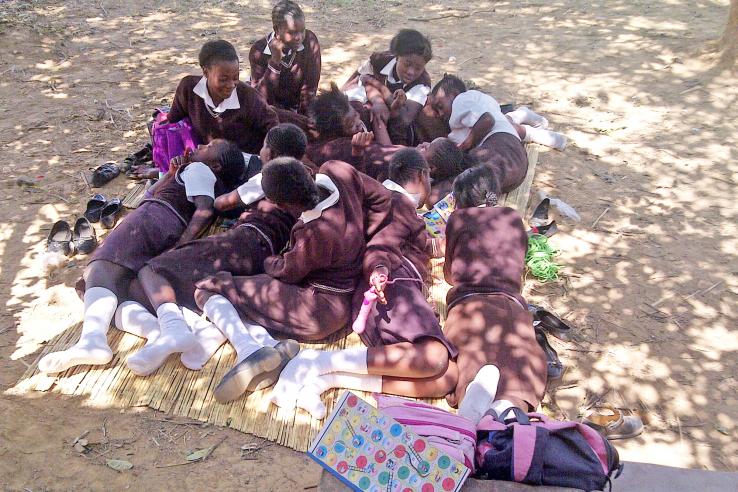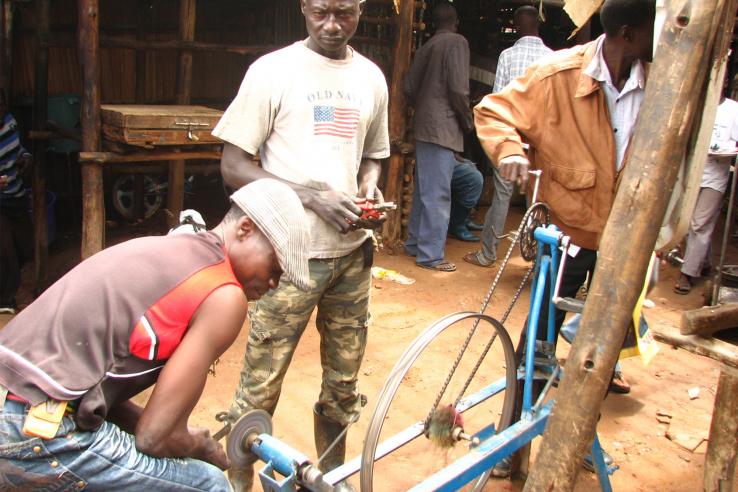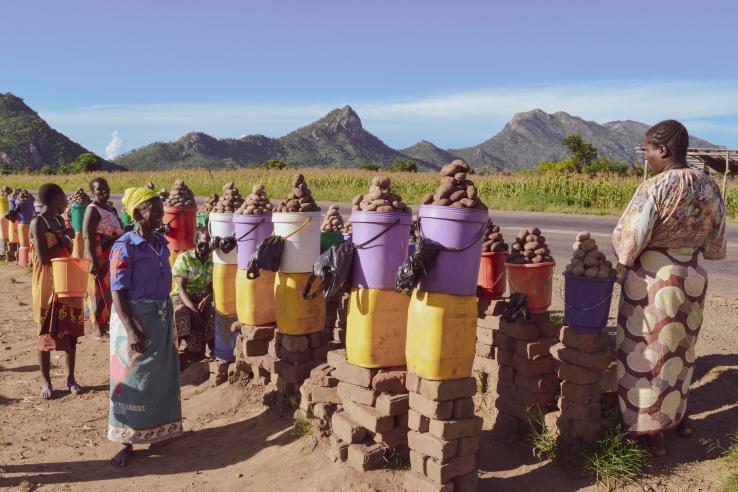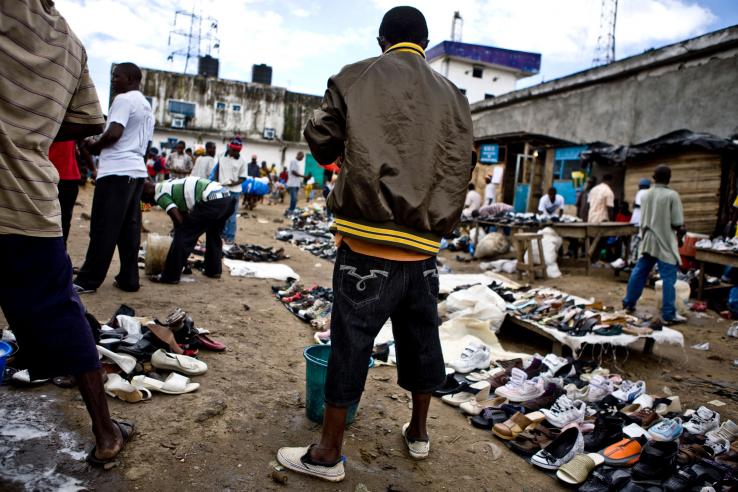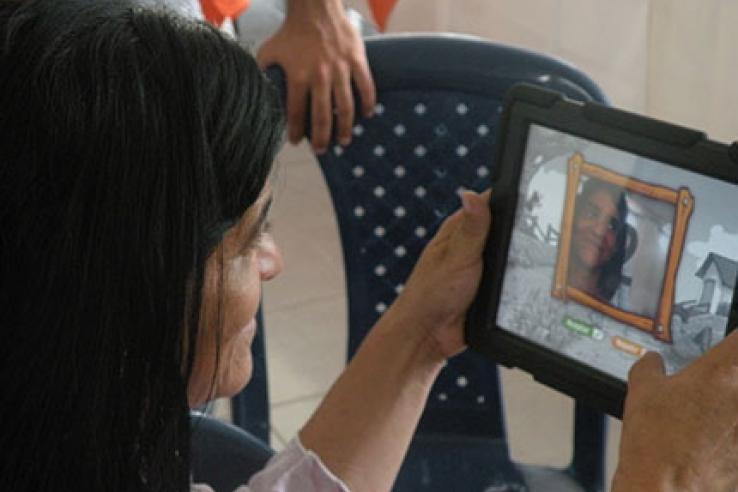Displaying 1171 - 1185 of 1291
Evaluation
Researchers examined two occasions in which an Argentine Congressional chamber was subject to randomly assigned term lengths as a result of political or constitutional changes. Assignment to a longer term increased overall legislative effort.
Evaluation
In Pakistan, researchers conducted an evaluation to test the impact of different types of mobile conditional cash transfers (mCCTs) on childhood immunization coverage and timeliness. Overall, small mCCTs led to increases in rates of immunization coverage at a low administrative cost. Additionally, researchers found that design details like payment certainty, schedule, and delivery method are important considerations.
Evaluation
Can television shows change how people think and act? In Nigeria, researchers evaluated the impact of MTV Shuga, a drama featuring educational storylines about HIV/AIDS on viewers’ sexual knowledge, attitudes, and behaviors. The study shows that exposure to MTV Shuga improved viewers’ knowledge and attitudes, increased HIV testing, reduced risky sex, and among women, led to fewer sexually transmitted infections.
Evaluation
Building on an earlier study in Uganda, researchers are working with Innovations for Poverty Action to measure the impact of radio programming on gender-related attitudes and behaviors.
Evaluation
In Sub-Saharan Africa, young girls drop out of school at higher rates than boys. A large portion of drop outs occur between primary and secondary school, when families in most countries have to start paying fees for their children to continue attending school. In Zambia, researchers designed and evaluated the impact of a training that taught adolescent girls non-cognitive skills to negotiate health and educational decisions with authority figures in their lives. They found that girls who were taught negotiation skills had better educational outcomes in the following three years. The negotiation training appeared to have larger effects on girls with higher abilities.
Evaluation
Research has shown that people living in poverty are more likely to experience a range of psychological barriers that might constrain economic success. These barriers may include lower aspirations and goals, a perception that their actions have limited impacts on their circumstances, time inconsistent preferences, as well as a lack of information about the potential for high-return investments. Unconditional cash transfers are an effective and increasingly popular approach to lifting households out of poverty, but households may benefit from additional support to maximize the impact of receiving cash.
Evaluation
In a series of evaluations, researchers took advantage of a lottery that gave low-income uninsured adults the chance to apply for Medicaid in the United States to examine the impact of health insurance on these outcomes over the first two years.
Evaluation
Researchers used a randomized evaluation to measure the impact of a government program that gave groups of young people US$400 per person in return for a proposal to start a skilled trade. Recipients invested the cash and significantly increased their incomes for several years. However, nine years after the grants, non-recipients eventually caught up to grant recipients in terms of income and employment, suggesting that in this instance, grants acted more like a kick start than a lift out of poverty.
Evaluation
In Ethiopia, researchers randomly assigned mostly female jobseekers to receive an industrial job offer or an unconditional cash transfer, meant to spur self-employment. While they found positive impacts of the cash transfers on occupational choice, income, and health in the first year, these effects largely dissipated after five years, suggesting one-time interventions may be insufficient for overcoming barriers to wage- or self-employment.
Evaluation
Researchers partnered with a local organization in Malawi to randomly vary the wages offered in a rural cash-for-work program, and evaluate the impact of wages on participants’ willingness to work. They found that nearly three-quarters of participants were willing to perform agricultural work even at very low wages and that wages had a limited impact on most participants’ decision to work.
Evaluation
To understand the long-term effectiveness of CBT among adults, researchers evaluated the impact of a short-term CBT program and the distribution of unconditional cash transfers on the behavior of high-risk young men in Liberia. CBT reduced criminal behavior among participants both in the short run, one year following the intervention, and the long run, ten years later.
Evaluation
Numerous summer jobs programs in the United States seek to support the employment of young people facing barriers to employment and opportunity. Researchers studied the impact of the New York City Summer Youth Employment Program (which used a lottery to determine participation) on youth earnings, employment, college enrollment, incarceration, and mortality. Although the program increased earnings and employment during the year of participation, it caused a modest decrease in earnings in subsequent years and had no effect on college enrollment. The program also decreased the incarceration and mortality rates of program participants.
Evaluation
Researchers collaborated with Fundación Capital and the Government of Colombia to conduct a randomized evaluation of LISTA, a tablet-based financial education program designed for participants in Colombia's government CCT program, to study its impact on financial knowledge and behavior. LISTA had significant positive impacts on participants’ financial knowledge, attitudes, practices, and performance.
Evaluation
Researchers used data on lottery winners in Sweden to determine whether receiving an influx of cash affected the labor supply decisions of winners and their spouses. They found that lottery winners reduced their labor supply, suggesting that cash transfers can have an effect on labor market outcomes.

